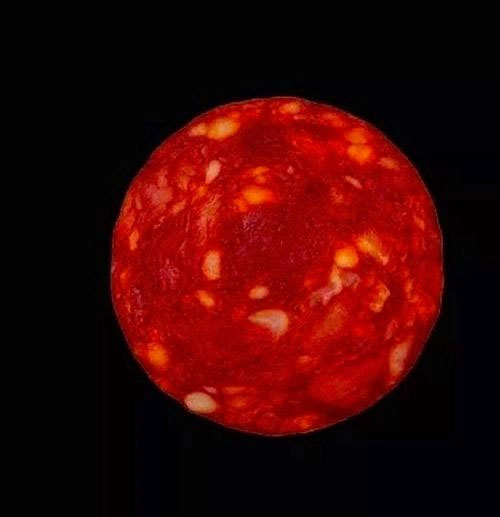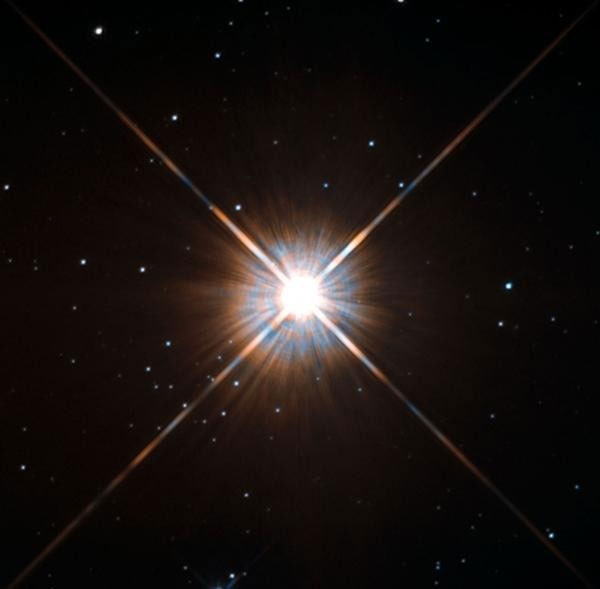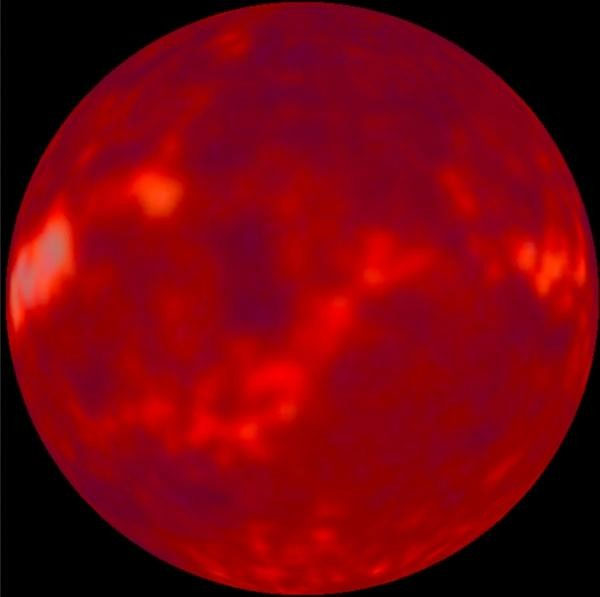A French physicist recently posted a photo claiming it was an image of “a planet,” stating that it was captured by NASA’s telescope. However, the truth is quite astonishing: that “planet” image is actually something much closer to us.
It is often said that photos shared on social media are often very “unreal” and edited. But who would have thought that the “planet” image posted by a reputable physicist would also be “unreal”?
Etienne Klein, a research director at the French Atomic Energy Commission, recently shared a photo on Twitter, claiming it was the latest image of a star. He wrote: “Photo of Proxima Centauri, the closest star to the Sun, located 4.2 light-years away. This image was captured by the James Webb Telescope (NASA’s extremely advanced telescope). Look at those details… A whole new world is revealed day by day.”

Image of “Proxima Centauri” shared by physicist Klein. Photo: Twitter.
Some people quickly recognized that the bright red “Proxima Centauri” image was fake, and it seemed Klein might have intended it as a joke. However, the general public, lacking extensive knowledge of astronomy, might not know what a planet is supposed to look like, leading many to believe it was a genuine image of a planet.
Of course, there were skeptics as well: “Is this a joke, or does Proxima Centauri actually look like a slice of sausage?”

This is chorizo sausage. Photo: Epicurious.
In reality, the image of Proxima Centauri shared by Klein resembles a slice of sausage because… it is indeed a real slice of sausage! Specifically, it is chorizo!
Now, netizens are outraged! One user wrote sternly: “As a scientific research director, it is inappropriate for you to share this without immediately clarifying that this is false information. You know how quickly misinformation spreads!”

This is the actual image of Proxima Centauri released by NASA. Photo: NASA.
Seeing the public’s reaction, Klein later clarified that he only intended to encourage the public not to quickly accept images from reputable sources but to ask questions instead.
However, it was too late; many people, including researchers, criticized Klein for “spreading misinformation within the scientific community.”
As a result, Klein had to write: “I apologize to those who may have been shocked by my joke; it was not true at all.”



















































